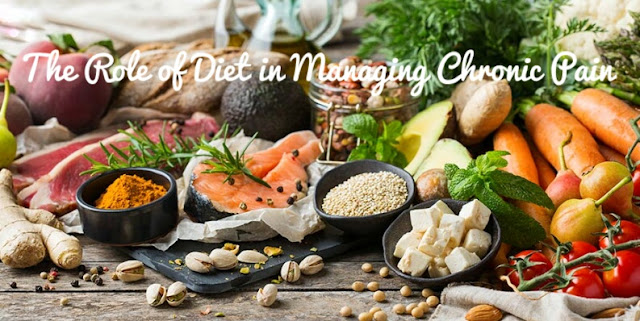The Role of Diet in Managing Chronic Pain
The Role of Diet in Managing Chronic Pain
Chronic pain is a widespread issue affecting millions of people globally, often accompanied by various medical conditions such as arthritis, fibromyalgia, or neuropathy. While there is no cure-all for chronic pain, emerging research suggests that diet plays a crucial role in managing and alleviating symptoms.
Inflammation and its Link to Chronic Pain
One key factor to consider is inflammation, a common denominator in many chronic pain conditions. Certain foods can either fuel or suppress inflammation in the body. Diets rich in processed foods, sugars, and saturated fats may contribute to inflammation, exacerbating pain symptoms.
Embracing an Anti-Inflammatory Diet
An anti-inflammatory diet focuses on foods with potential pain-reducing properties. Key components include:
1. Omega-3 Fatty Acids
Found in fatty fish, flaxseeds, and walnuts, omega-3 fatty acids have anti-inflammatory effects. Incorporating these foods may help reduce inflammation associated with chronic pain.
2. Fruits and Vegetables
Colorful fruits and vegetables contain antioxidants that combat oxidative stress and inflammation. Berries, leafy greens, and cruciferous vegetables are particularly beneficial.
3. Whole Grains
Whole grains provide complex carbohydrates and fiber, promoting stable blood sugar levels. This can contribute to a more balanced inflammatory response.
4. Spices and Herbs
Turmeric, ginger, and garlic are known for their anti-inflammatory properties. Including these spices in your diet might offer natural pain relief.
The Gut-Brain Connection
Recent studies highlight the connection between the gut and the brain, suggesting that the gut microbiome plays a role in influencing pain perception. Probiotics and a diet rich in fiber can contribute to a healthier gut, potentially impacting chronic pain.
Foods to Limit or Avoid
Just as certain foods can alleviate chronic pain, others may exacerbate it. Foods high in refined sugars, trans fats, and artificial additives could contribute to inflammation and worsen symptoms. Monitoring your diet and minimizing these elements may help manage chronic pain more effectively.
Consultation with Healthcare Professionals
While dietary changes can complement traditional pain management strategies, it's crucial to consult with healthcare professionals. Chronic pain is complex, and individual responses to dietary adjustments vary. A personalized approach, considering medical history and specific conditions, is essential for effective pain management.
While diet alone may not cure chronic pain, adopting an anti-inflammatory approach through healthy food choices can be a valuable component of a comprehensive pain management plan. Combined with medical treatments and lifestyle adjustments, a well-balanced diet may contribute to improved overall well-being and reduced chronic pain symptoms. Always consult with healthcare professionals for personalized guidance in managing chronic pain effectively.




Comments
Post a Comment